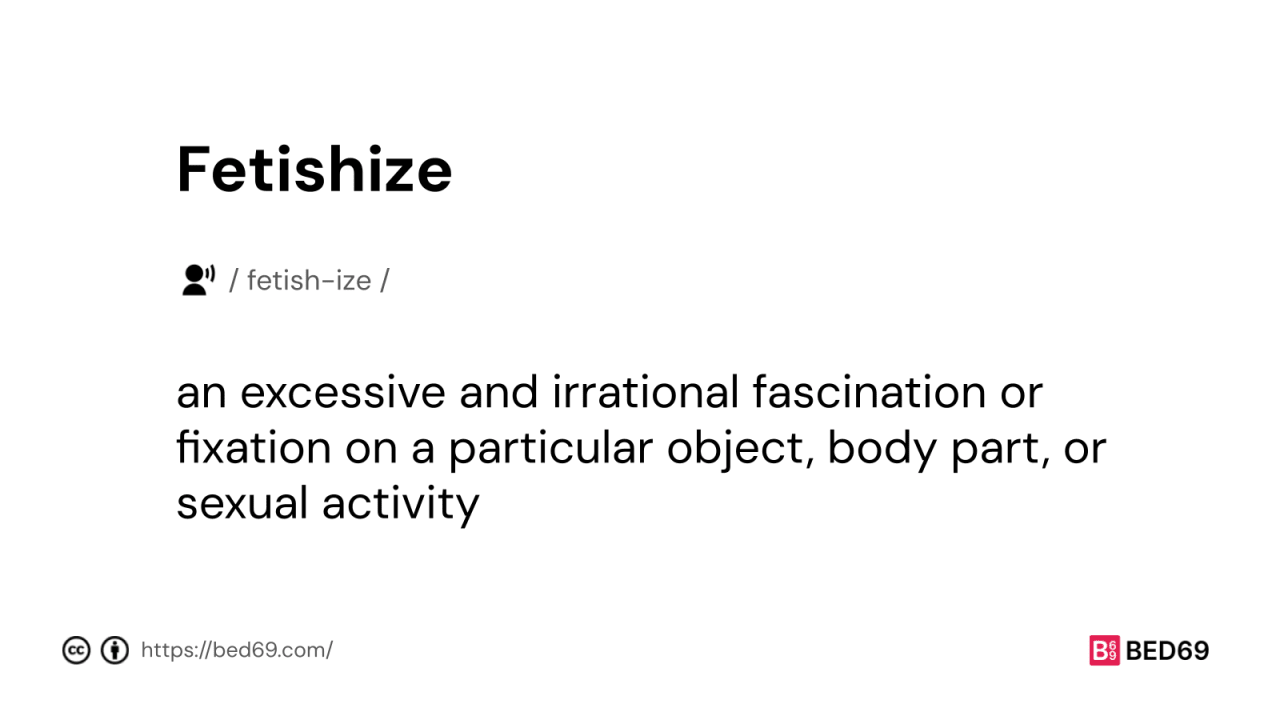What is Fetishize?
In a sexual context, fetishism is a condition in which a person’s sexual arousal and gratification is dependent upon an object, body part, or non-human entity, such as an article of clothing, a type of material (such as leather), or a particular scenario or scenario. It’s not considered a problem unless it becomes the sole focus of the person’s sexual desire and interferes with their ability to form normal sexual relationships.
Fetishize pronunciation: / fetish-ize /

What drives fetishization
What drives fetishization often stems from a heightened focus on specific objects or body parts, which can become the primary source of sexual arousal and gratification for an individual. This fixation can develop due to a variety of factors, such as personal experiences, cultural influences, or psychological predispositions. In some cases, fetishization may arise as a coping mechanism or a way to fulfill unmet emotional needs.
Individuals who engage in fetishization may find themselves drawn to certain objects or behaviors as a means of seeking pleasure or relief from underlying stressors. This intense fixation can sometimes lead to a distorted view of sexuality and intimacy, impacting one’s ability to engage in healthy, fulfilling relationships.
Understanding the root causes of fetishization can help individuals address any underlying issues and work towards developing a more balanced and satisfying approach to their sexual desires.
Impact of fetishization on relationships
The impact of fetishization on relationships can be significant. When one person fixates on a particular object or body part as the sole source of arousal, it can create challenges in forming intimate connections. This singular focus may lead to dissatisfaction or a lack of fulfillment in a relationship, as the partner’s desires and needs may not align with the fetishized object or act.
Moreover, fetishization can hinder communication and understanding between partners, as the emphasis on the fetishized element may overshadow emotional intimacy and mutual respect. This imbalance can strain the relationship dynamics, causing discomfort or alienation for the partner who does not share the same fixation.
Ultimately, addressing fetishization within a relationship requires open dialogue, empathy, and a willingness to explore shared interests beyond the fetishized element. Seeking professional guidance or therapy can be beneficial in navigating these complexities and fostering a healthier, more balanced relationship dynamic.
Explore other interesting terms:
